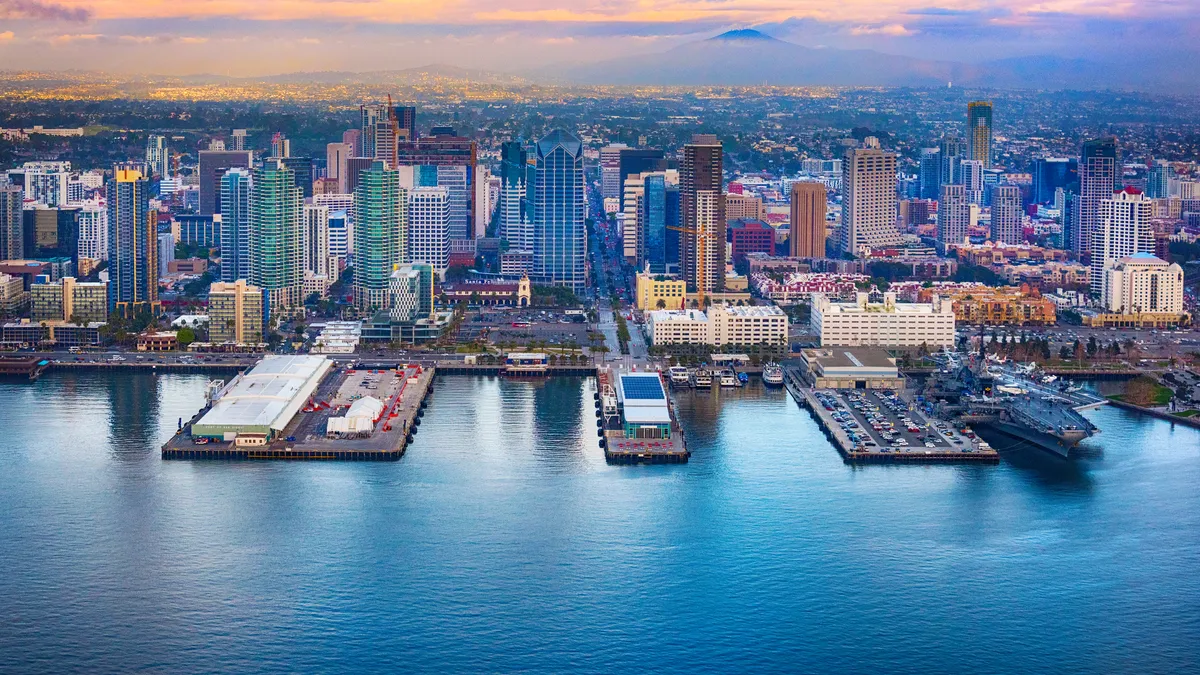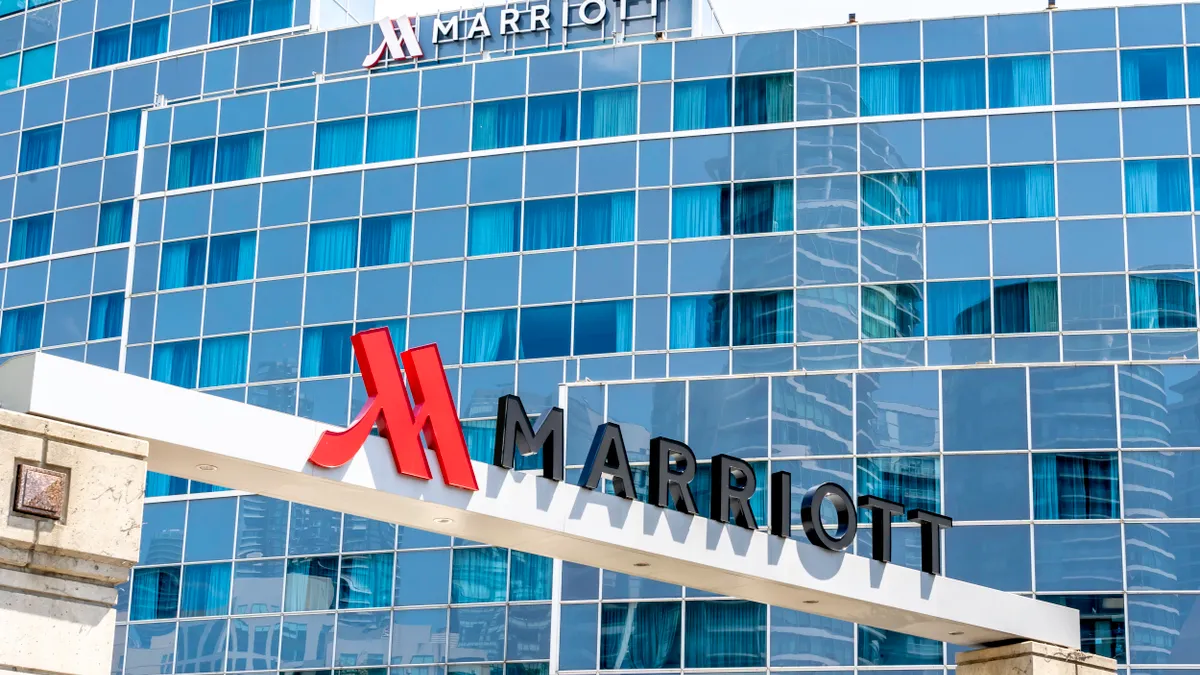Dive Brief:
- The San Diego City Council passed the Hospitality Minimum Wage Ordinance, which mandates a minimum wage of $25 per hour for tourism workers at hotels with 150 rooms or more, Council member Sean Elo-Rivera, who introduced the ordinance, announced on social media Tuesday.
- In a separate announcement Wednesday, the Asian American Hotel Owners Association called the exemption for hotels with fewer than 150 rooms — which it advocated for — “a victory.” AAHOA also successfully advocated for a phased-in implementation, which will see minimum wages for workers covered under the ordinance begin with a $19 minimum wage on July 1, 2026, rising by $1.50 annually until workers receive $25 per hour in 2030.
- Though the phased-in approach “provides some breathing room,” the wage requirements will still be a burden for the city’s hotel owners, San Diego County Hotel & Lodging Association Executive Director Fred Tayco told Hotel Dive.
Dive Insight:
According to Tayco, the new minimum wage comes “at a time when we are facing broader economic headwinds and have not recovered from the global pandemic.”
“We must be clear that such cost mandates may not be sustainable for our family-owned businesses and keep the city competitive,” Tayco told Hotel Dive.
In a statement, AAHOA President and CEO Laura Lee Blake said the wage’s carve-out for small hotels, meanwhile, “has set a new standard.”
"Economy and limited-service hotels simply cannot absorb dramatic wage hikes the same way full-service properties can. This carve-out protects jobs, keeps doors open, and allows owners to continue serving their communities,” she said.
The Hospitality Minimum Wage Ordinance also applies to tourism workers at San Diego’s amusement parks, event centers and zoos.
Elsewhere in Southern California, AAHOA has been one of many hotel and tourism associations combating Los Angeles’ recently passed $30 minimum wage ordinance for hospitality workers.
In an interview with Hotel Dive in July, Blake said mandated wage increases in LA would be “tough” for hotel owners.
“Already, [owners] are facing increased costs due to inflation. Their insurance rates have skyrocketed. Their labor costs are rising. … What does that mean for the owners? Either they have to close their doors, or they have no choice but to somehow pass [costs] on to the traveling public,” Blake said, noting that she was anticipating similar measures to appear in other California cities.
“Usually, if something happens in LA, we will start seeing it spread across the country,” she told Hotel Dive in July.
An AAHOA- and AHLA-backed push for a citywide referendum on LA’s minimum wage requirements failed earlier this month.












